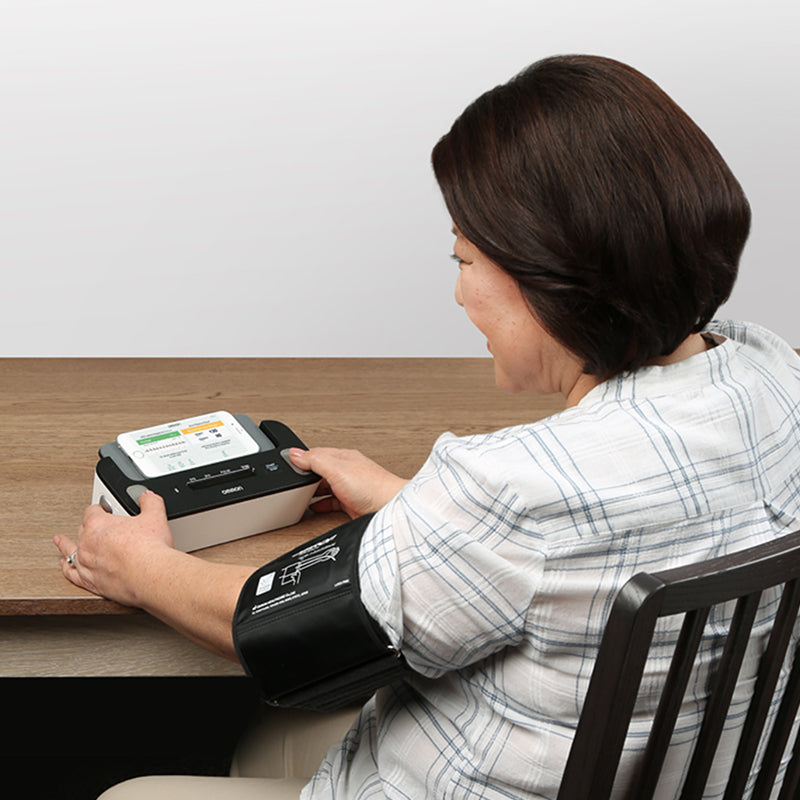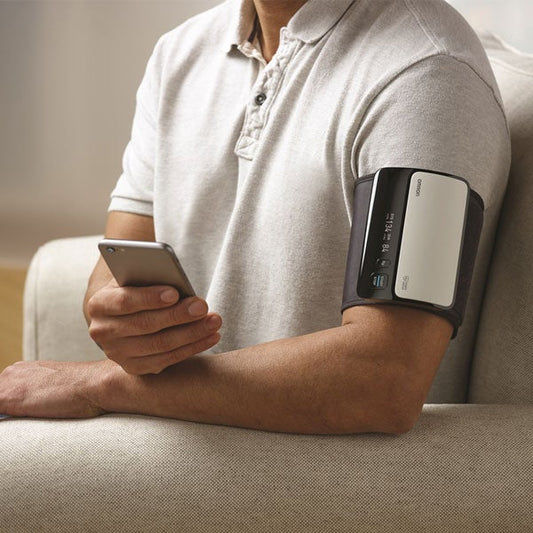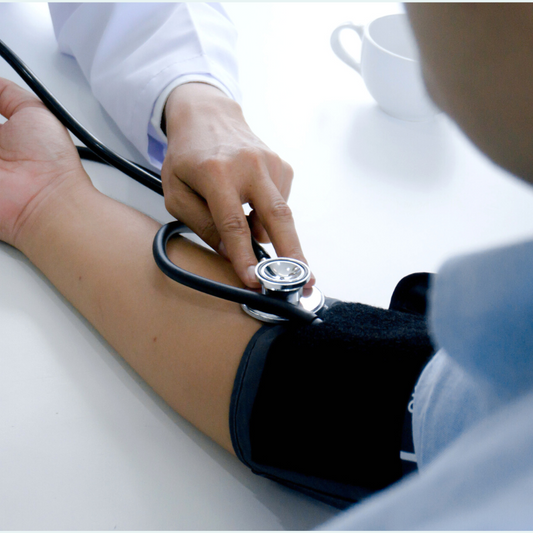Product Features
Blood Pressure and EKG. This device measures both your blood pressure and EKG simultaneously. This includes systolic, diastolic, pulse, atrial fibrillation, tachycardia, bradycardia, and sinus rhythm.
Wide-Range Cuff. Includes a durable, contoured D-ring wide-range cuff that measures 9 to 17 inches in circumferences.
Bluetooth® Technology. This technology allows you to connect to the free OMRON app which allows you to track, store, and share data. Your physician can use this information for heart health insights that may inform cardiac treatment decisions.
Watch the video below to learn more about the OMRON Complete™ Wireless Blood Pressure Monitor + EKG (BP7900).
What is an EKG?
An electrocardiogram (ECG or EKG) records the electrical signals in the heart. This is a test used to detect potential heart problems and monitor the heart's health. You may be wondering, "What is the difference between ECG and EKG?" They are both abbreviations. ECG is for electrocardiogram in English and EKG is based on the German spelling, eletrokardiogramm. They stand for the same test, so don't worry when you see the two abbreviations used interchangeably.
OMRON Complete™ Wireless Blood Pressure Monitor is developed with AliveCor® which is the market leader in FDA-cleared personal EKG technology. The technology is going to help identify these potential heart problems:
- Atrial fibrillation (AFib). This is an irregular and often very rapid heart rhythm.
- Bradycardia. This is when the heart beat abnormally slow, so less than 60 beats per minute.
- Tachycardia. This is a fast heart rate, specifically over 100 beats per minute. Having a fast heart rate may not always be a concern depending on the context such as when you are exercising or responding to stress.
- Sinus Rhythms. This is a term for normal heart rhythm.
What to Keep in Mind
When deciding on a blood pressure monitor, keep these points in mind:
- Consult with your physician to help decide which device would be best for you.
- Think about what you are trying to monitor, detect, and track.
- Research the device to understand what features are available, warranty, and other vital information.
If you have any questions or concerns then don't hesitate to email us at orders@bvmedical.com or call us at (888) 822-8293 to connect with one of our Customer Service Representatives. Where people can reach people.
This insight is sponsored, collaborative content with OMRON Healthcare, Inc.
Sources:









